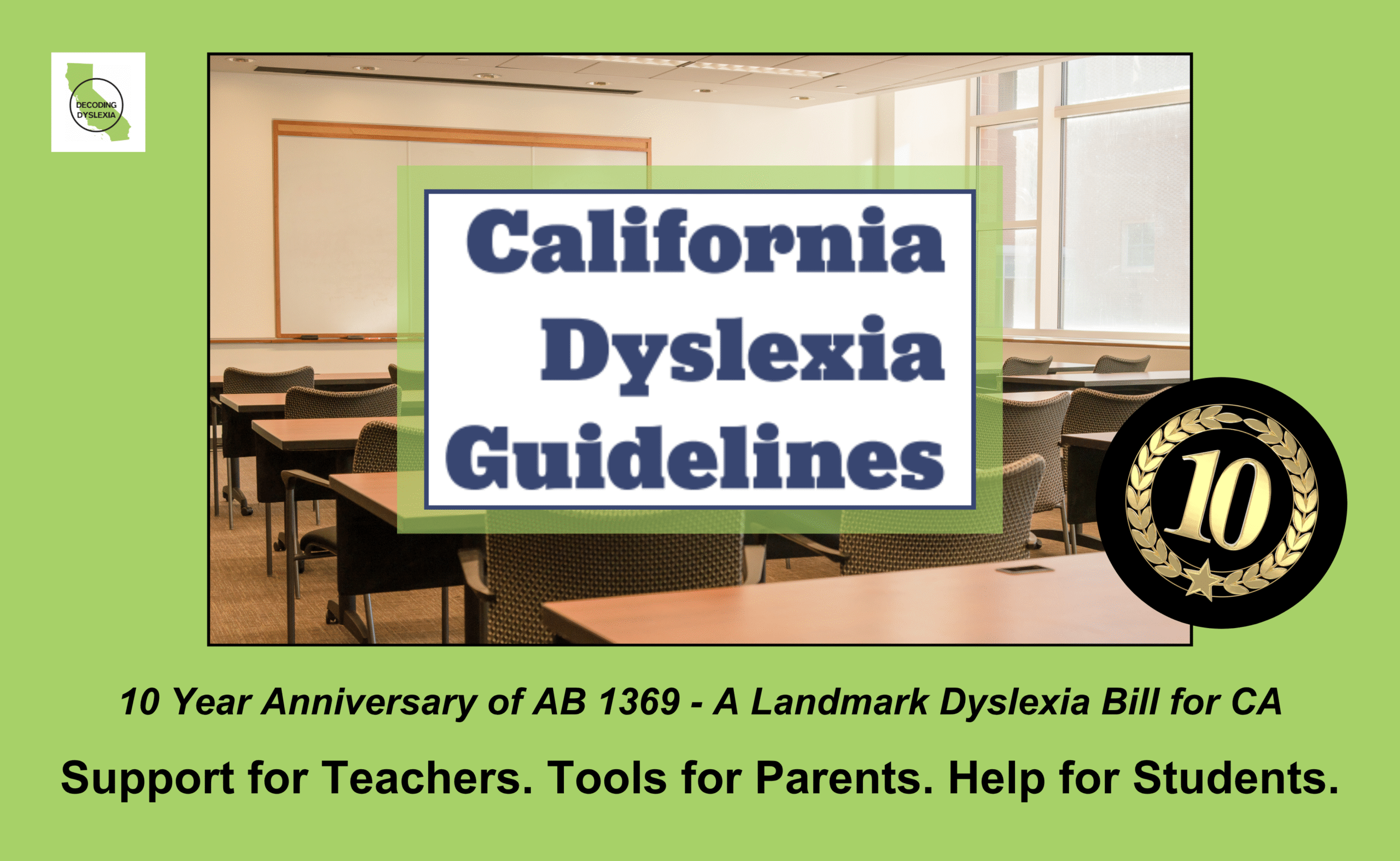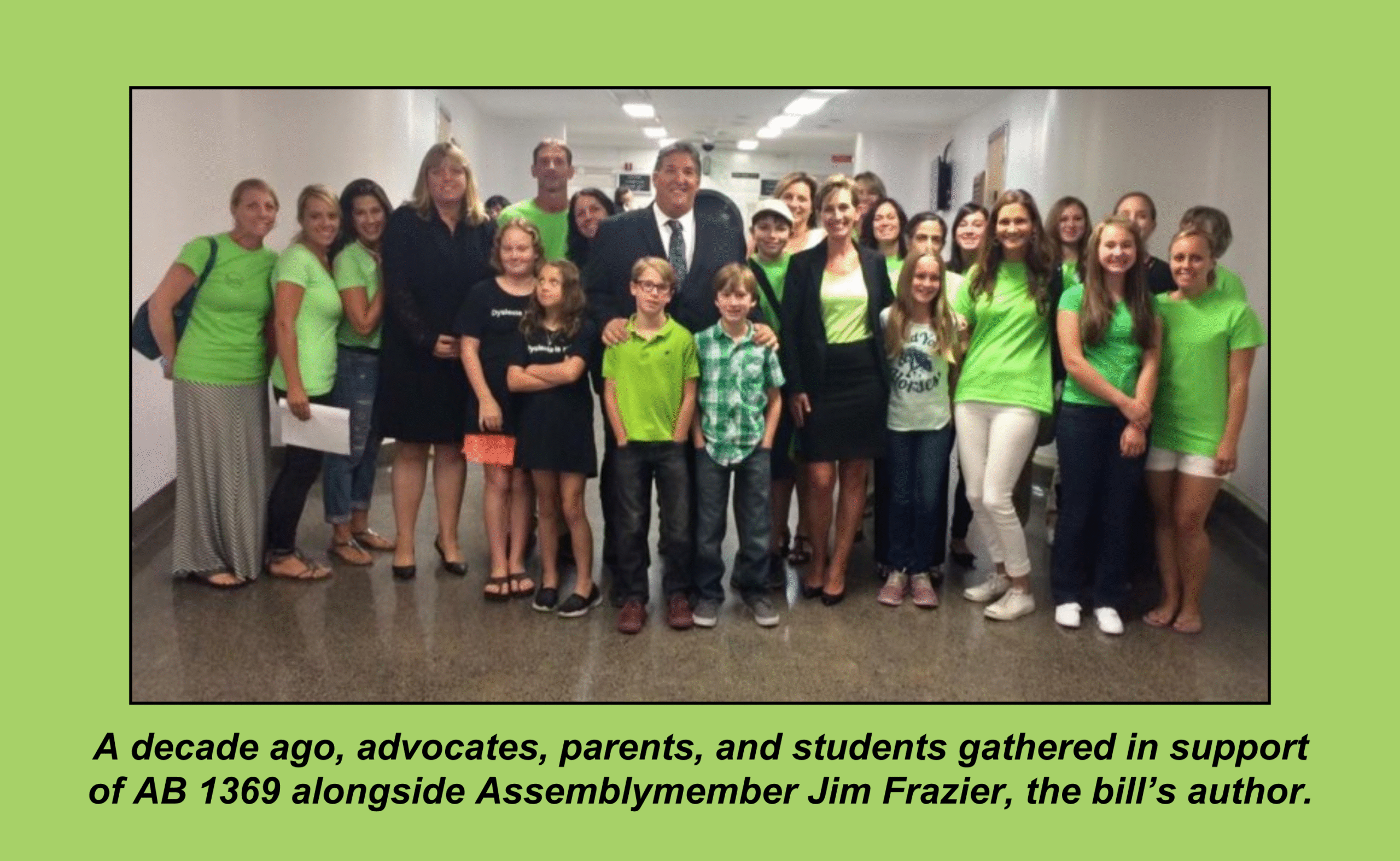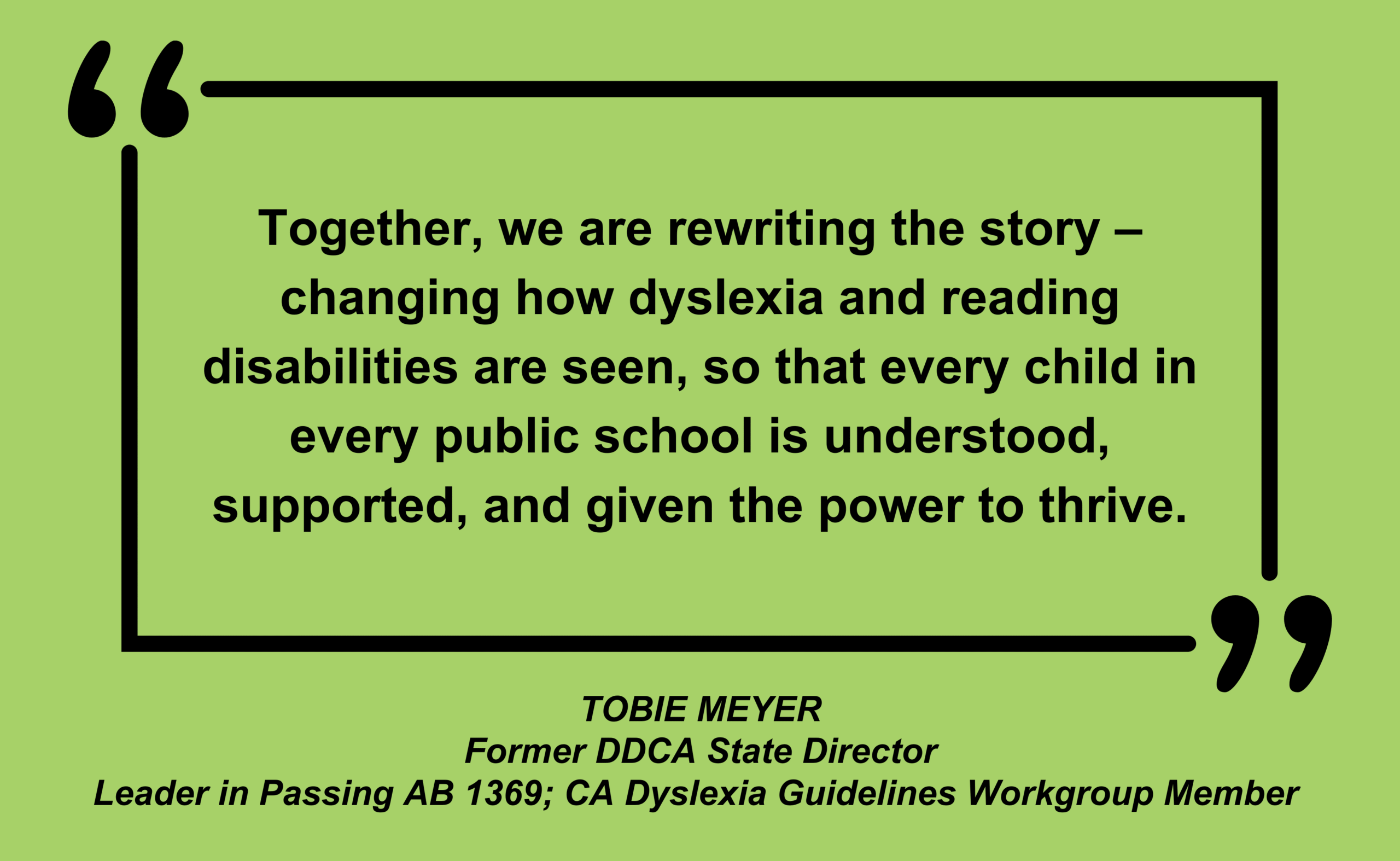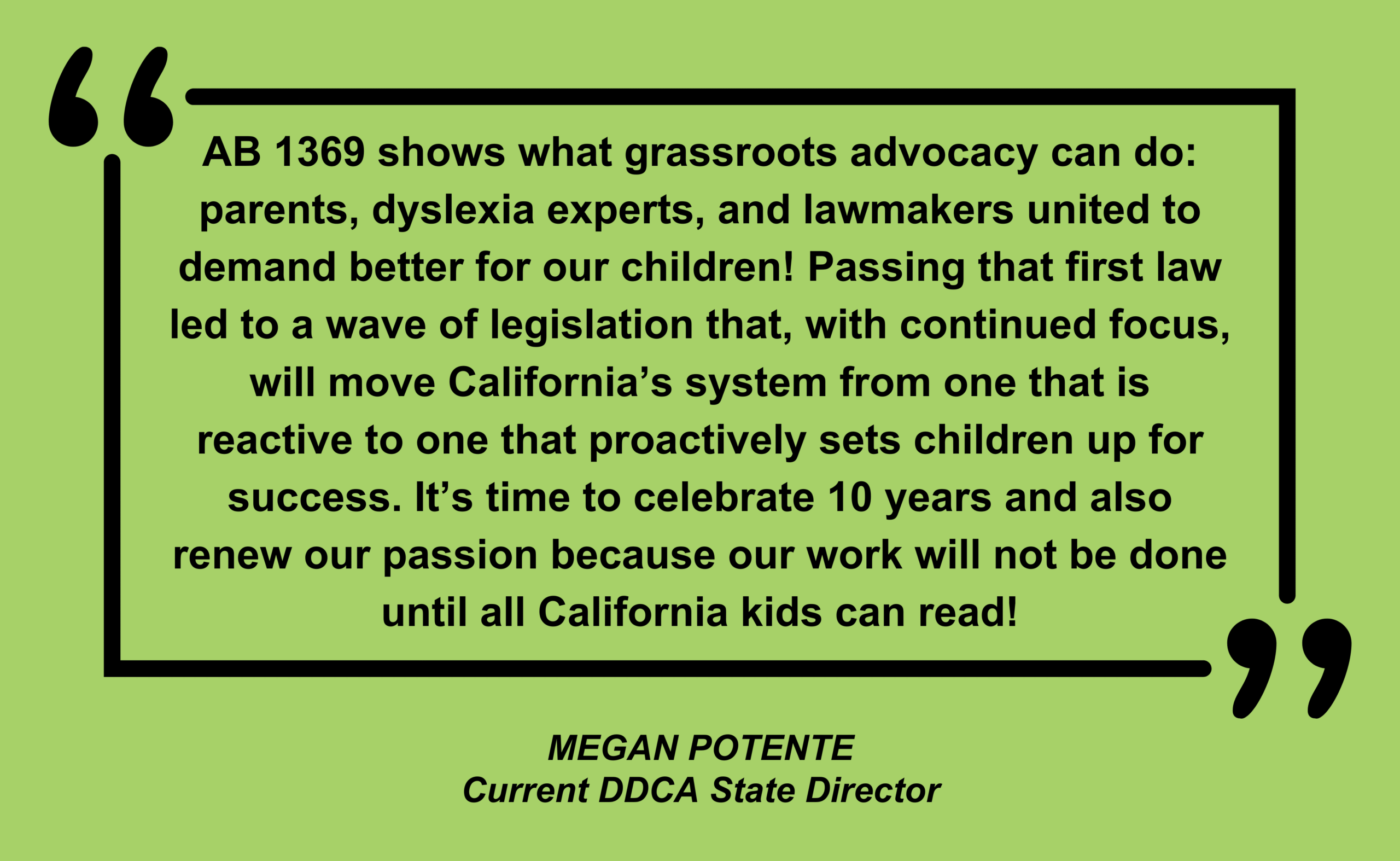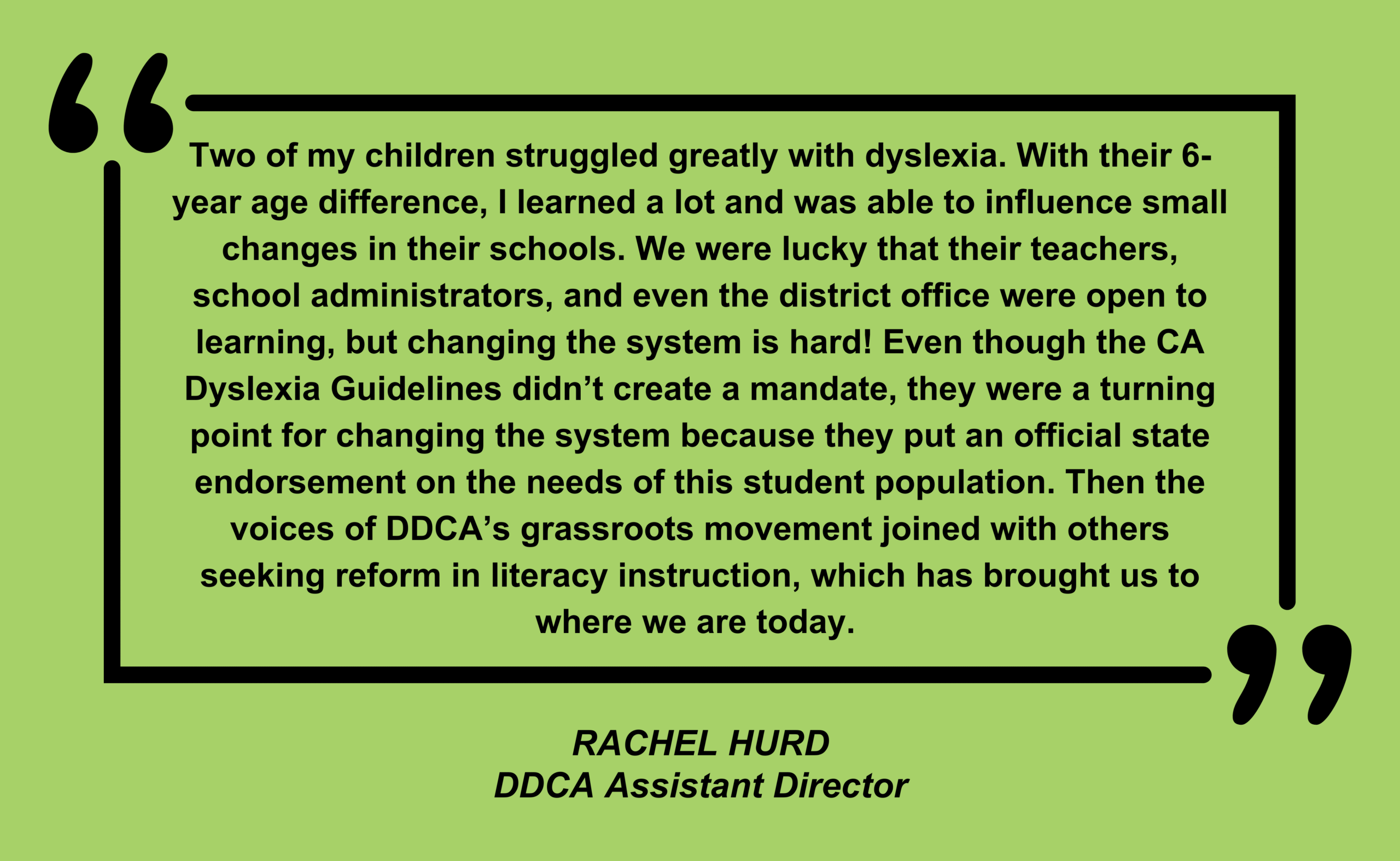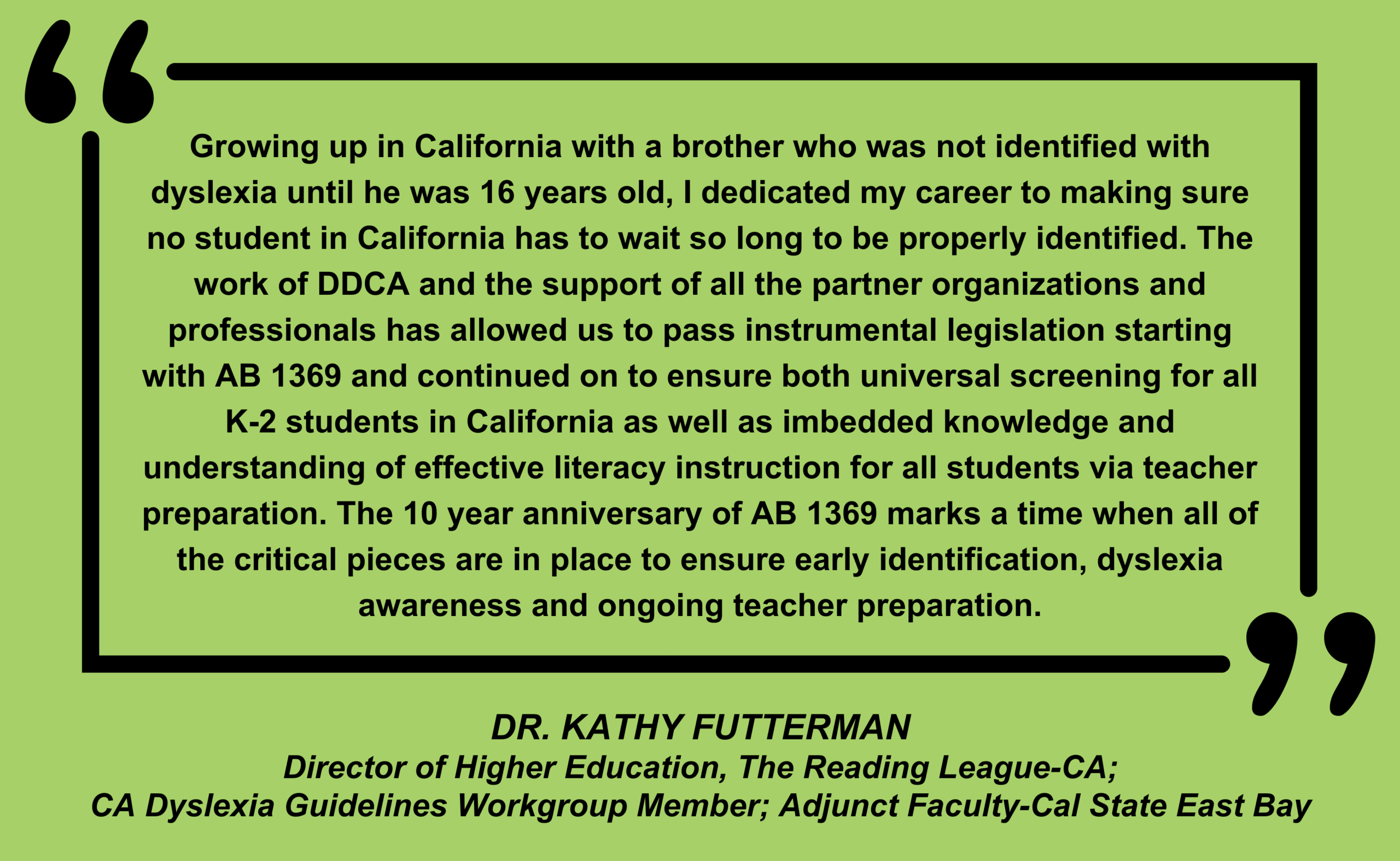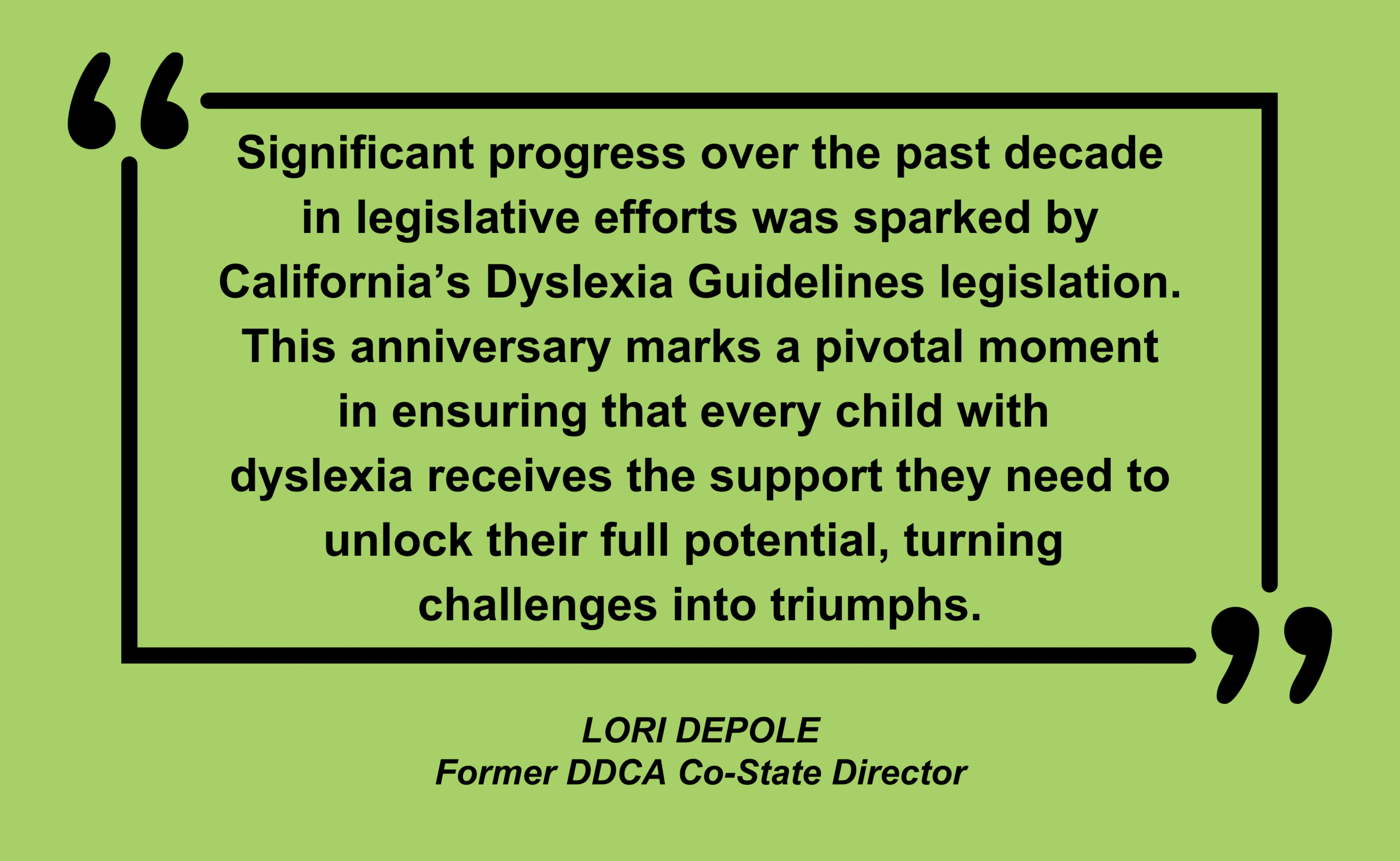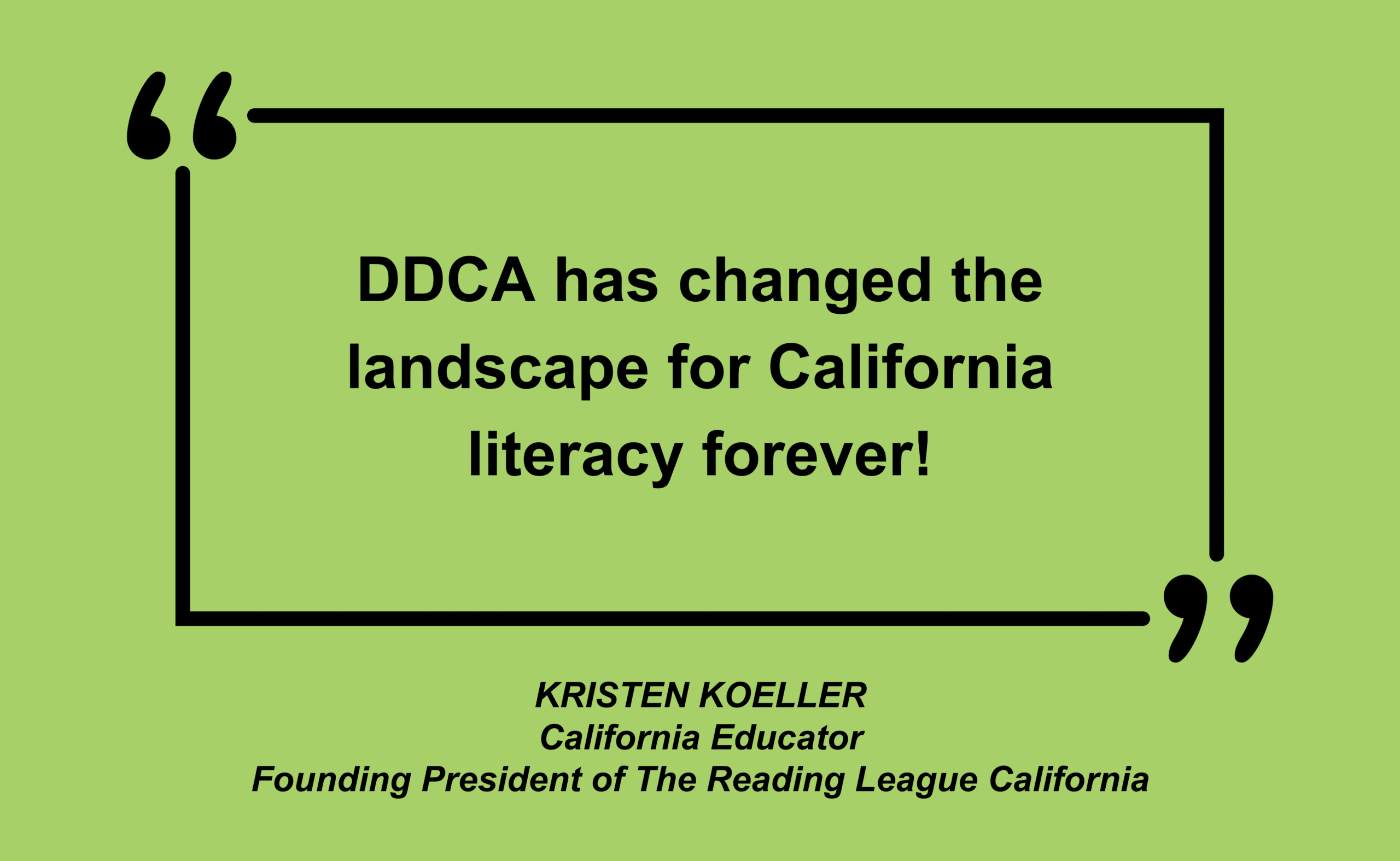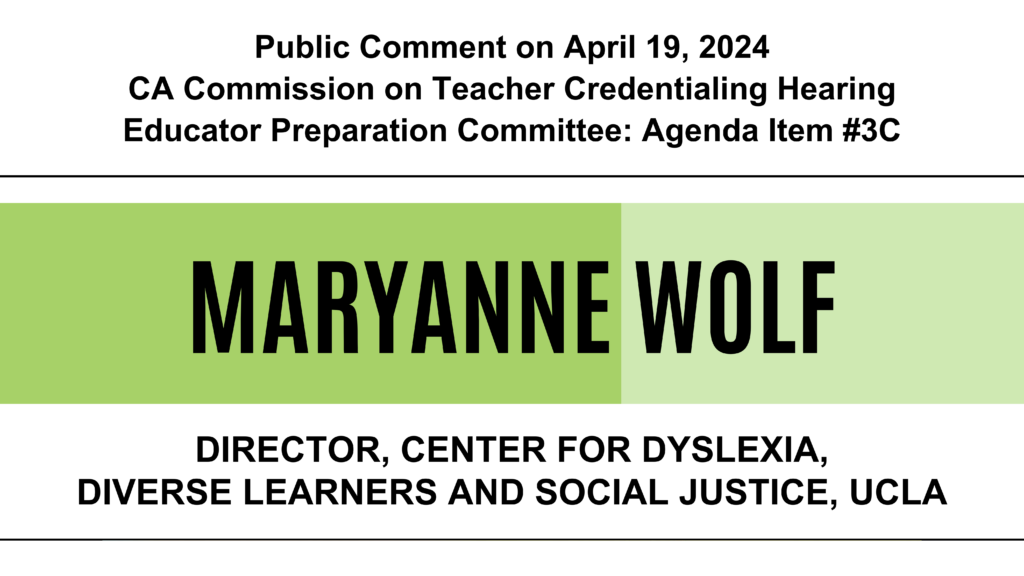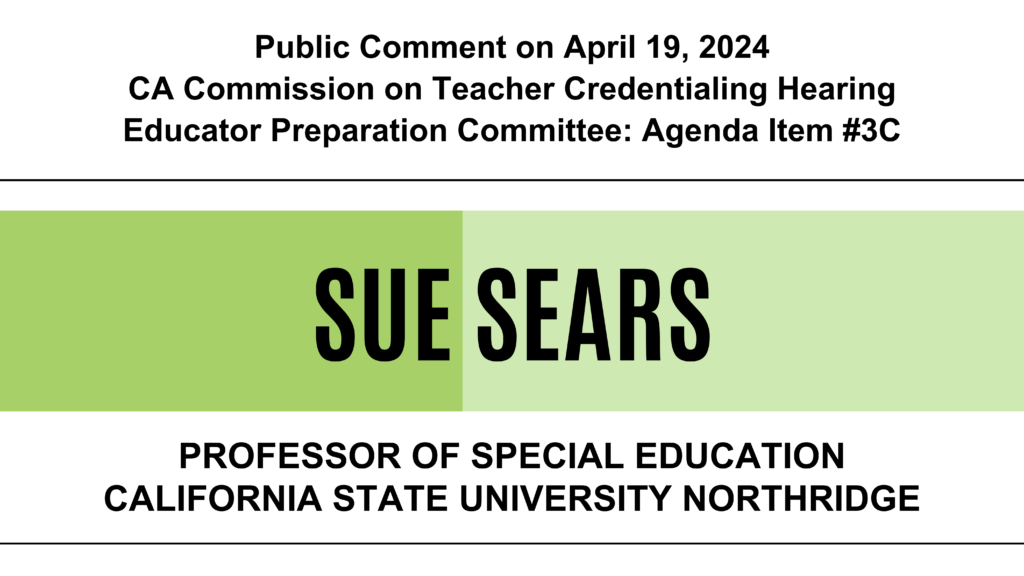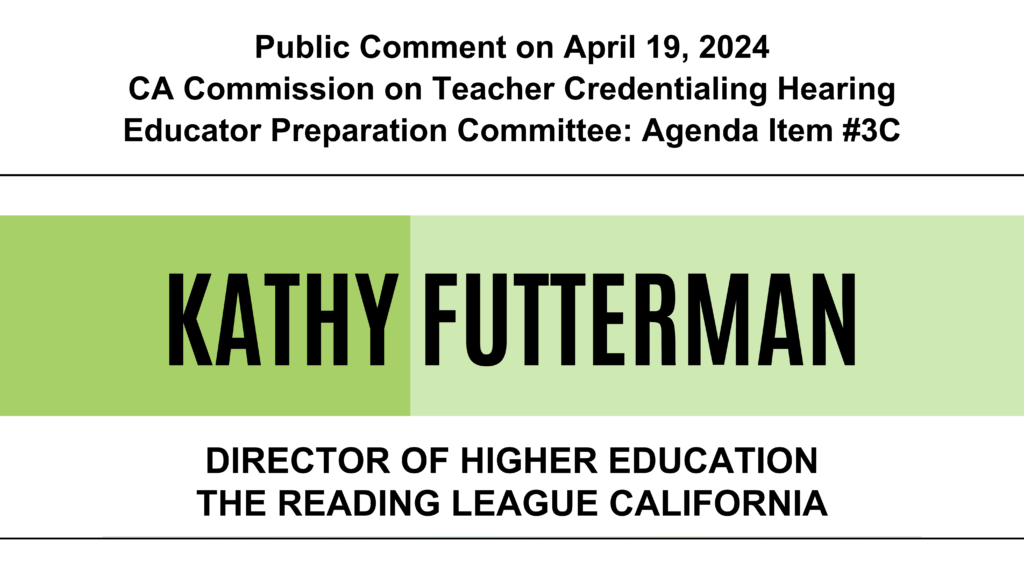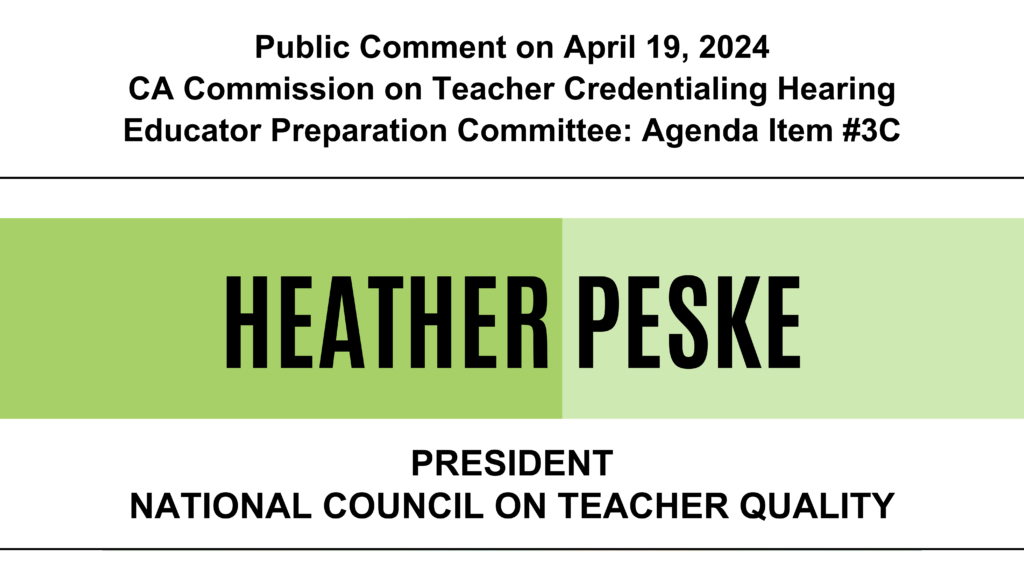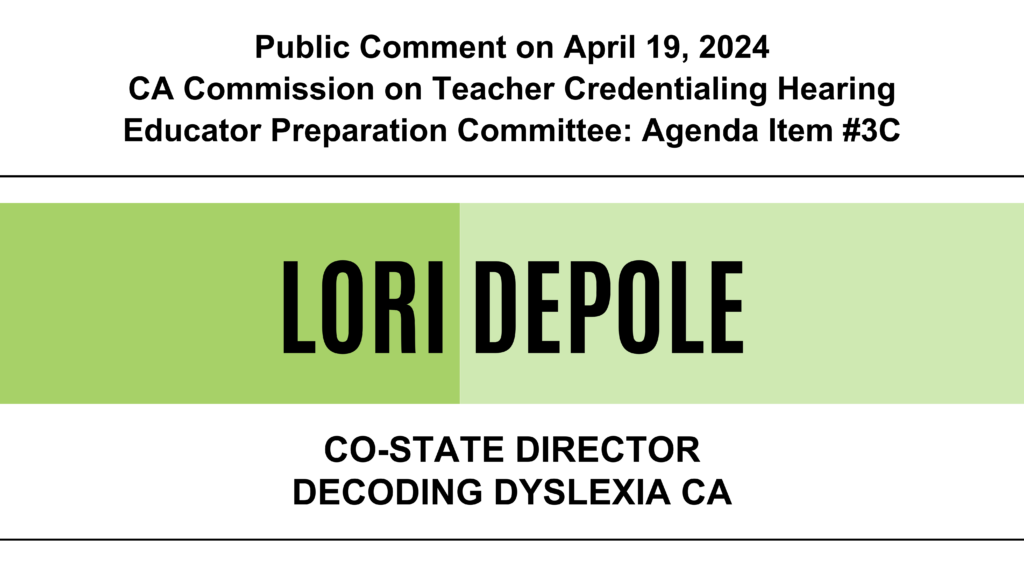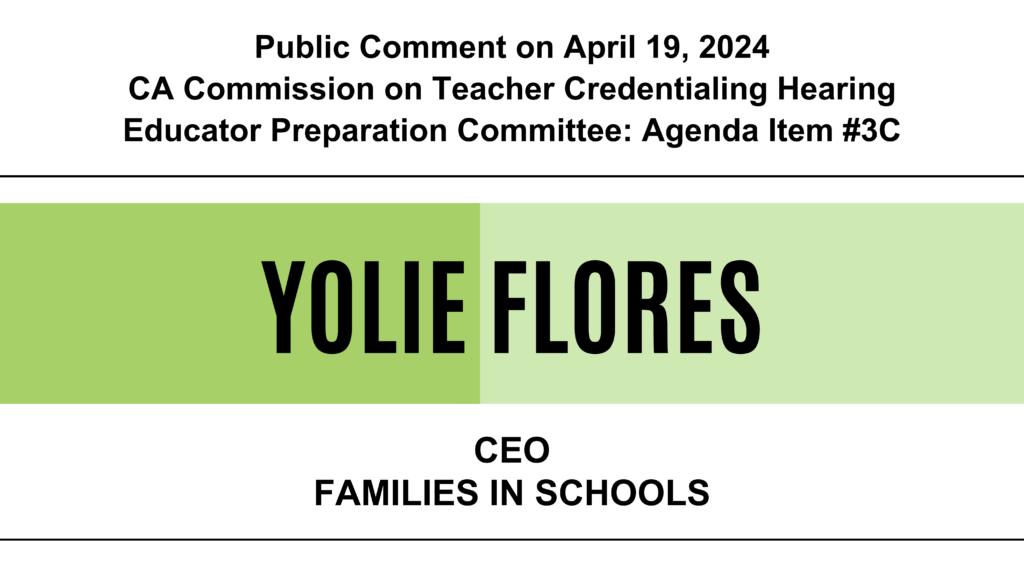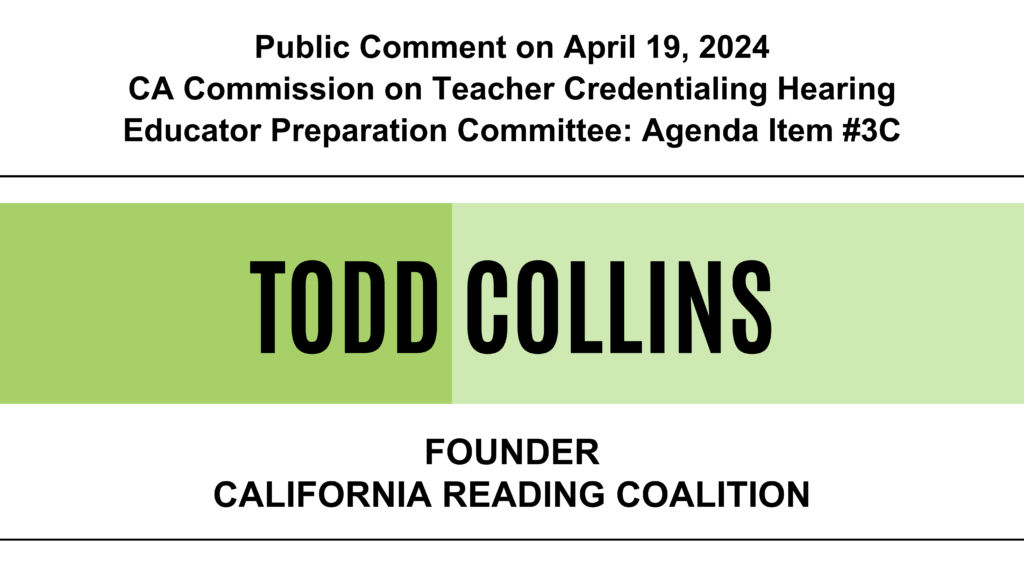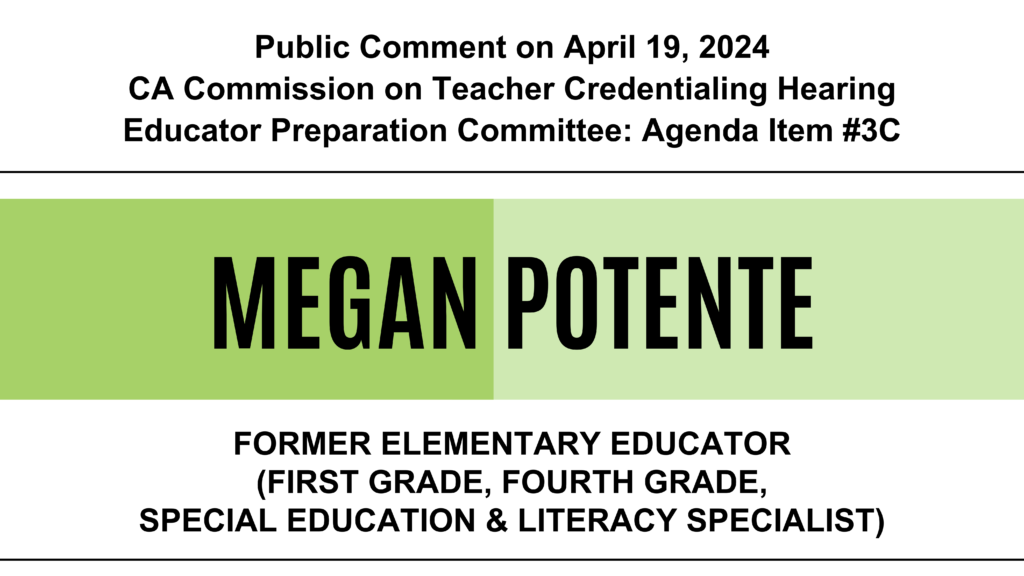October 8, 2025 marks ten years since Governor Jerry Brown signed AB 1369 into law — a landmark moment for children with dyslexia in California public schools. The law, which DDCA sponsored, was a significant step for improving awareness and support for students with dyslexia in California public schools, but it didn’t stop there. AB 1369 also set in motion further policy shifts aimed at improving literacy teaching and learning for all of California’s nearly six million public school students.
What AB 1369 Mandated
- The CA Dyslexia Guidelines: AB 1369 required the California Department of Education to develop and publish evidence-based guidance to assist general education teachers, special education teachers, and parents in identifying, assessing, and supporting students with dyslexia. These guidelines provide practical, classroom-focused information about characteristics of dyslexia, recommended screening and assessment practices, evidence-based instruction and the principles of structured literacy.
- “Phonological processing” was added to special education eligibility: The law explicitly added “phonological processing” to the list of areas to consider when determining eligibility for special education under specific learning disability. That recognition elevated the role of phonological processing (the ability to perceive, manipulate, and remember speech sounds) as a core consideration in identifying students who need specialized reading instruction.
AB 1369 gave educators and families shared language and a clearer framework to identify children with word reading accuracy, fluency, or spelling difficulties. For DDCA, it was an important start to a long advocacy journey.
A Catalyst for Further Policy
The original vision of AB 1369 included teacher training and universal screening for dyslexia risk, but those provisions were cut during negotiations. DDCA vowed to keep fighting, because guidelines alone won’t stop kids from falling behind. Universal screening and teacher preparation are proven pillars of effective reform. Ten years later, California has secured legislative wins in both of those areas, and DDCA’s persistent grassroots organizing played a key role.
Teacher Preparation in California
Decoding Dyslexia CA worked hard to help pass Senate Bill 488, which was signed into law in 2021. As a result, California’s teacher preparation programs have improved literacy standards so that future teachers will be equipped with the knowledge and skills necessary for improving early literacy outcomes. More specifically, pre-service teachers will receive training in screening students for reading difficulties, including risk of dyslexia, and implementing structured literacy in the classroom. The new literacy standards also require that teacher preparation programs incorporate the California Dyslexia Guidelines so that new teachers are better prepared to meet the needs of students with, or at risk for, dyslexia.
Universal Screening for Risk of Reading Difficulties, Including Dyslexia
On July 10, 2023, Governor Newsom signed the Education Omnibus Budget Trailer Bill (SB 114), which included requiring K-2 universal screening for reading difficulties, including risk of dyslexia. This fall, screening becomes a reality as all public schools are in their first year of implementation. Universal screening helps districts find students who are at risk early, so interventions can begin before gaps widen. Paired with guidance about progress monitoring and intervention, screening supports a system of timely response rather than waiting until students fail.
A Look to the Future
DDCA’s most recent legislative effort, AB 1454, passed the Senate on September 12, 2025 and is headed to the Governor’s desk to be signed into law. DDCA joined over 90 other organizations in fighting for this bill, which, paired with an allotment of $200 million for in-service teacher training in effective means for teaching literacy that was included in Governor Newsom’s 2025-26 Budget, will ensure in-service/current teachers, most of whom were trained before SB 488 became law, are prepared and have the materials necessary to get kids on track to achieve their right to read.
As we mark this 10th anniversary of the signing of AB 1369, it’s an important time to celebrate how far we’ve come. DDCA is at a turning point now. The laws we fought hard to pass are now in the implementation stage, and their success depends on implementation. We hope you’ll join our continuing quest for effective implementation, because when school systems change and meet the requirements of these laws with sustained implementation, we will move closer to a future where dyslexia and other reading difficulties are caught early and addressed effectively, so every California child has a fair shot at literacy and the opportunities it unlocks.
Reflections on California’s Literacy Progress
As always, please encourage your community – families, educators, and advocates – to sign up for DDCA emails to stay informed on all continued efforts to transform literacy outcomes in California.

